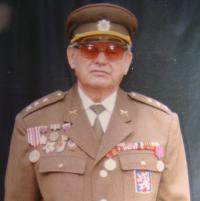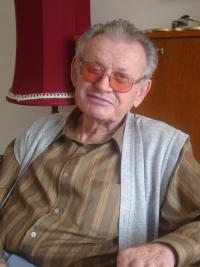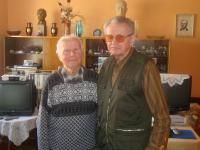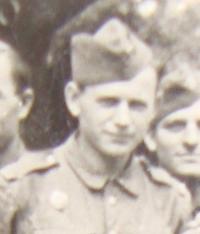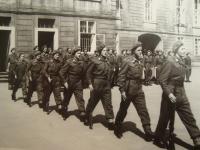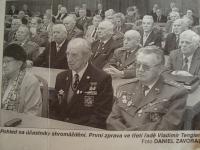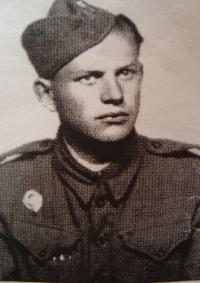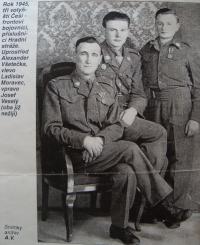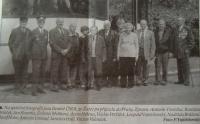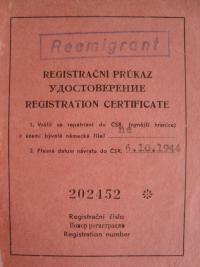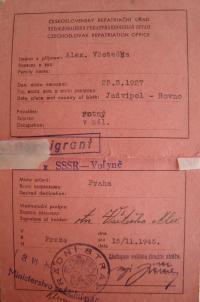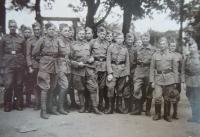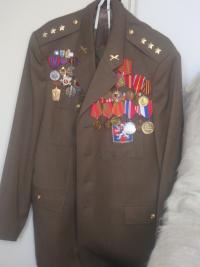It’s impossible

Download image
First lieutenant in retirement Alexandr Všetečka was born on March 25, 1927, in the village of Jadvipol in Volhynia in what then used to be Poland. His father was a butcher who owned a farmstead. Alexandr Všetečka lived through the Soviet (1939-1941) as well as the German (1941-1944) occupation of Volhynia. On May 5, 1944, he joined the newly constituted 1st Czechoslovak army corps in Rovno. After a stay in a replacement unit in Kamianets-Podilskyi, he was trained in Bessarabia and attended an officer cadet school. He was assigned to the 3rd brigade and served in the 4th battalion as a radiotelegraph operator. He took part in the combat in the Dukla pass in the Carpathian Mountains and the following fighting in Slovakia. He kept his uniform even after the war when he became a member of the guard of president Beneš at the Prague Castle. Later, he settled in Žatec and was employed in a purchase department and in a screw factory. Mr. Alexandr Všetečka lived in Žatec until his sudden death on February 27, 2013.
